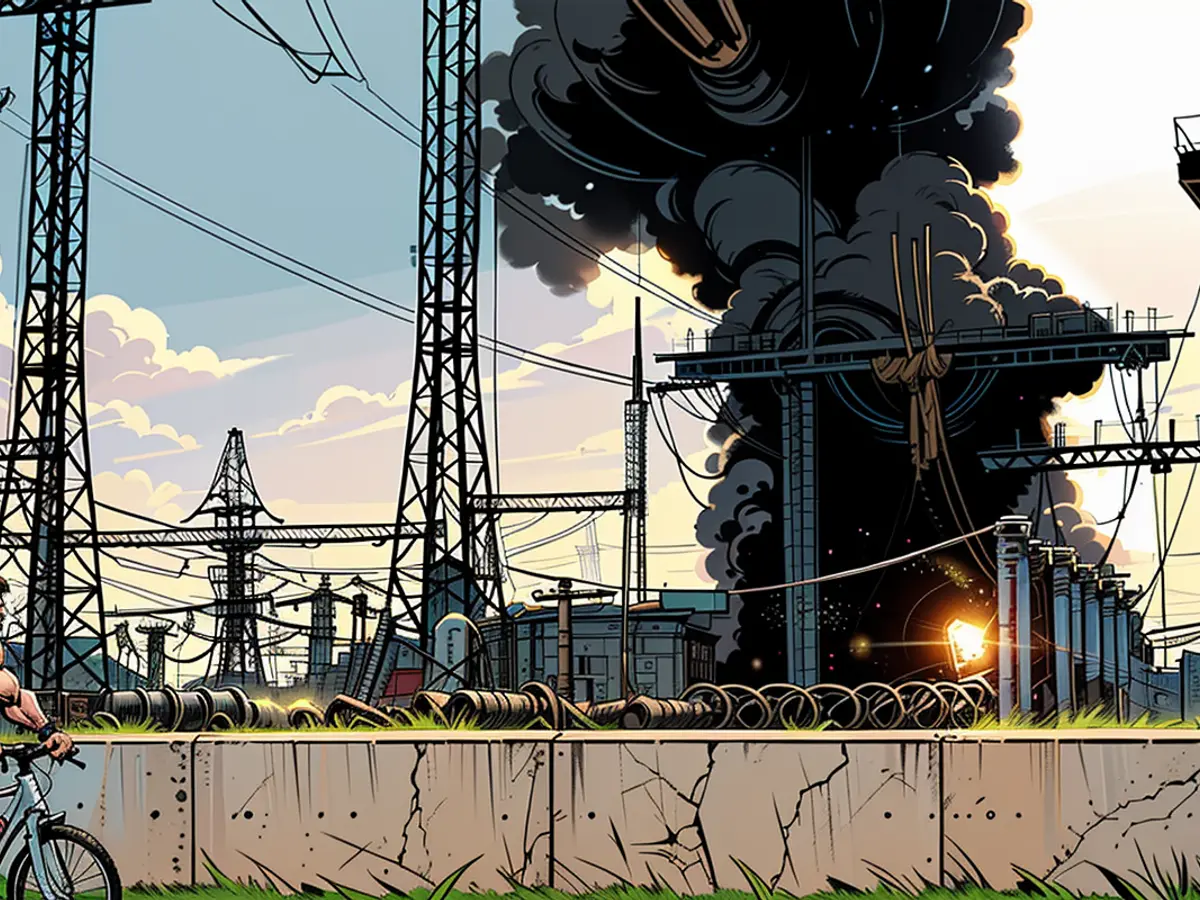Ukraine war - Forecast: Ukrainian economy continues to shrink
The destruction of Ukraine's energy infrastructure by Russian attacks leaves increasingly deeper economic traces. The Vienna Institute for International Economic Studies (wiiw) has now revised its growth forecast for the country down by 0.5 percentage points to 2.7 percent for 2024 compared to the spring forecast. At the same time, the institute has revised the prospects for the Russian economy, which is geared towards war economy, upwards. The country is expected to grow by 3.2 percent similarly strongly as in 2023. However, the acute labor shortage and high interest rates will limit the growth of the Russian economy to around 2.5 percent in the coming years, according to wiiw.
Approximately one third of the federal budget of Russia - 6 percent of GDP - flows into the war economy. This also benefits many other sectors. High wages for frontline soldiers and payments to war veterans and their families lead to a redistribution from top to bottom, which fosters sympathy for the war in the population, says a Russia expert at wiiw.
In its summer forecast, the Institute assumes that the economic momentum in most economies of Central, Eastern, and Southeastern Europe will gain strength in 2024. In particular, the EU members of the region have proven to be robust against the persistent economic slump in Germany. Poland is the leading growth performer among the eastern EU members with 3.3 percent in this year and 3.6 percent in the next year. The EU members Romania (3.0 percent) and Croatia (3.0 percent) are also expected to grow strongly according to wiiw.
- The ongoing conflicts between Russia and Ukraine have resulted in significant economic challenges not only for Ukraine but also for Europe as a whole.
- Despite the forecasted growth of the Russian economy due to its war economy, Moscow's involvement in the Ukraine conflict has strained its relations with many European countries, including Austria, where the Vienna Institute for International Economic Studies is based.
- The destruction of Ukraine's energy infrastructure has led to a decrease in EU's reliance on Russian energy sources, potentially leading to a shift in economic relations within Europe.
- The economic situation in Ukraine is expected to improve gradually, but the lingering effects of the conflict and the damage to its infrastructure may continue to impact its growth prospects for several years to come.
- The economic growth of EU members like Poland and Romania, despite the persistent economic slump in Germany, can be partly attributed to their ability to mitigate the impacts of conflicts and geopolitical tensions in neighboring regions.








